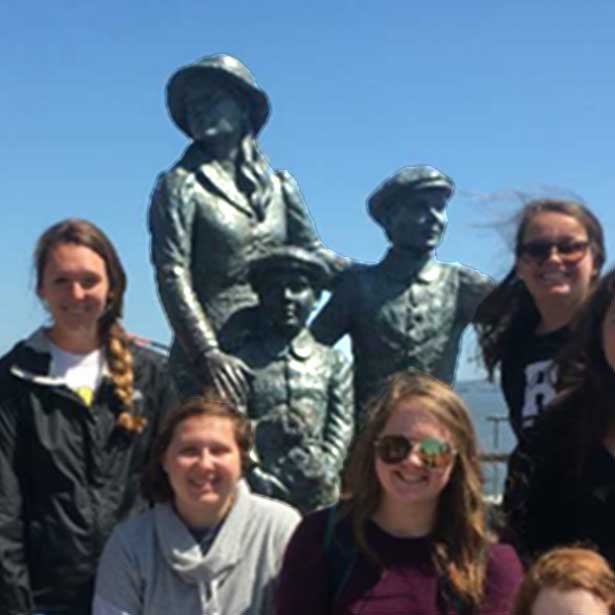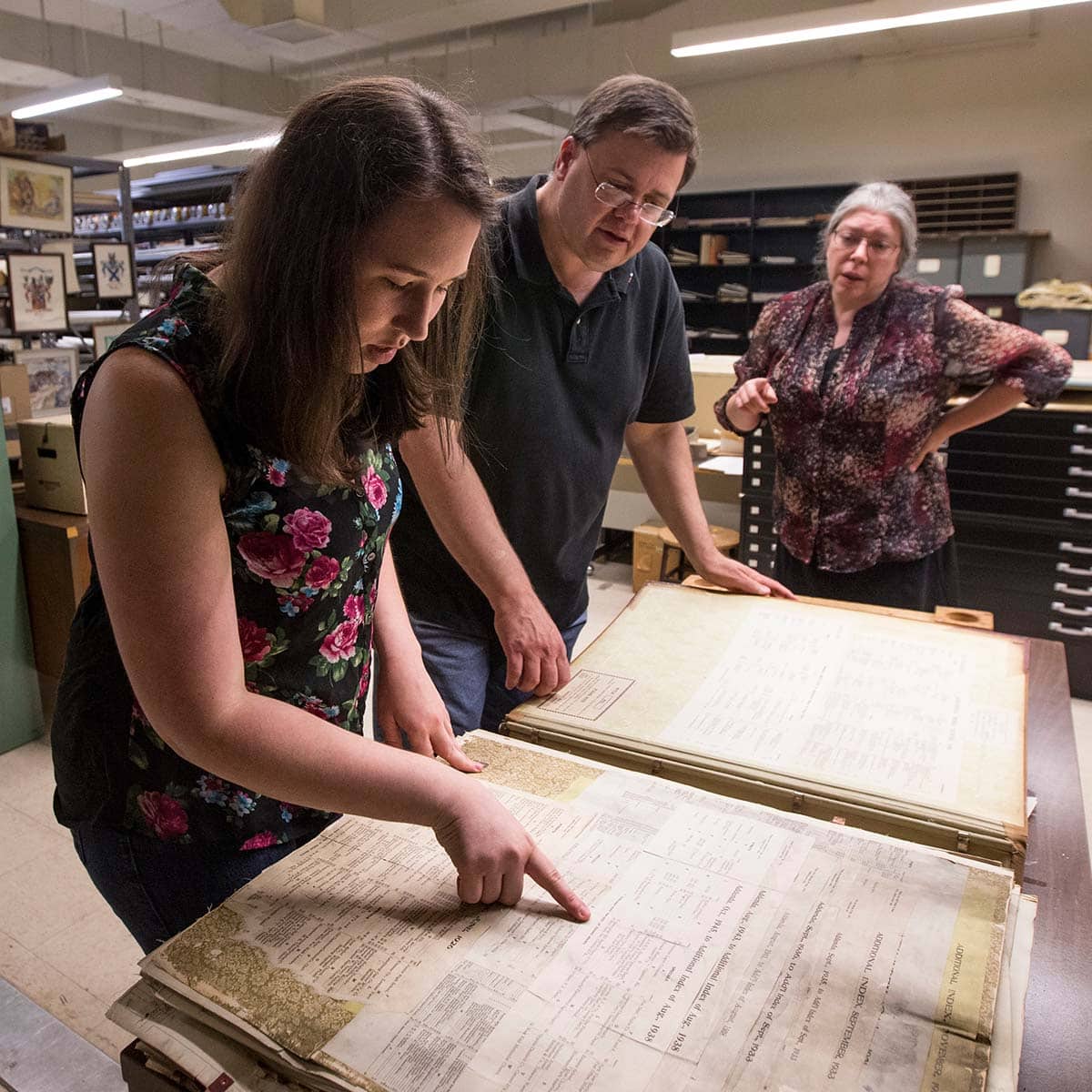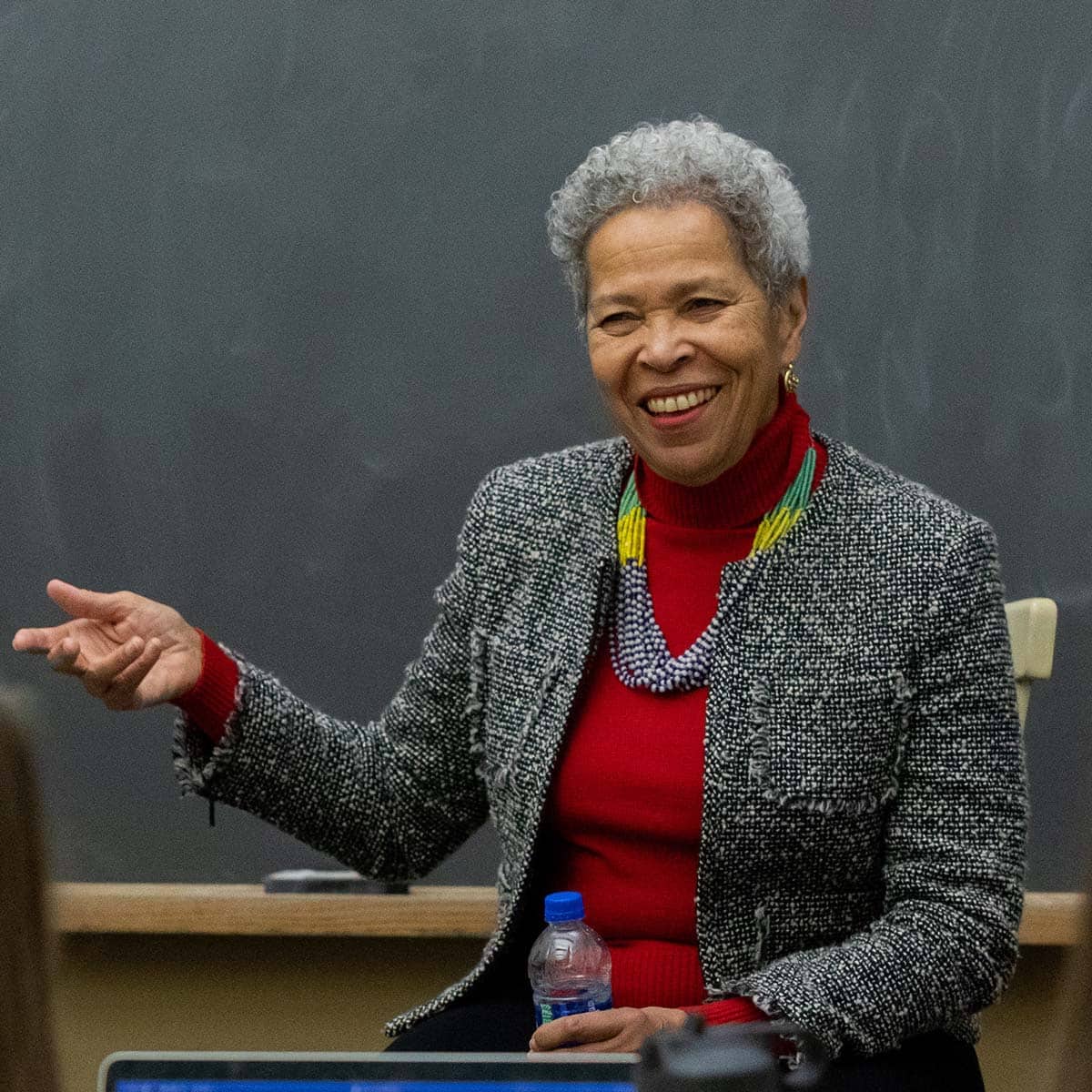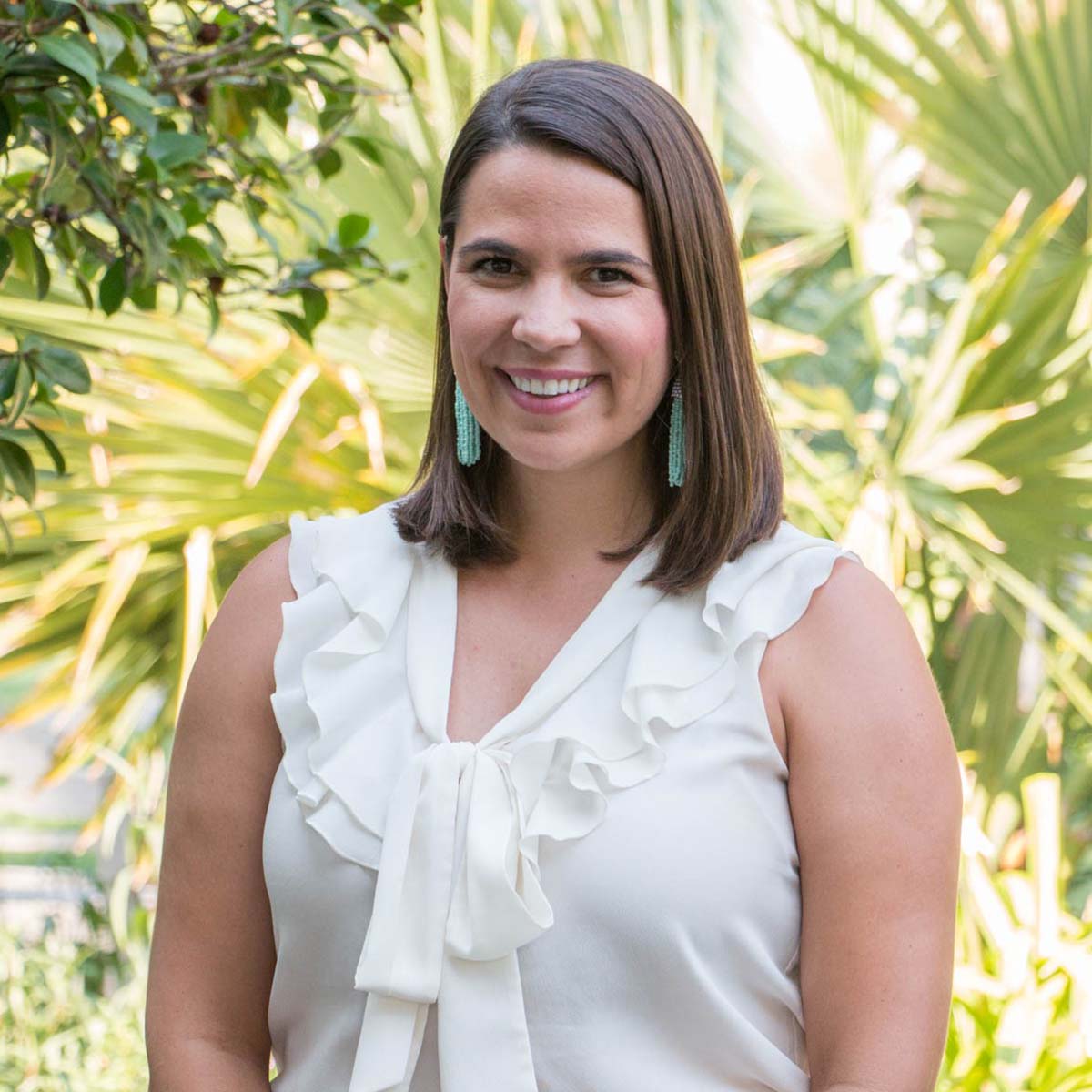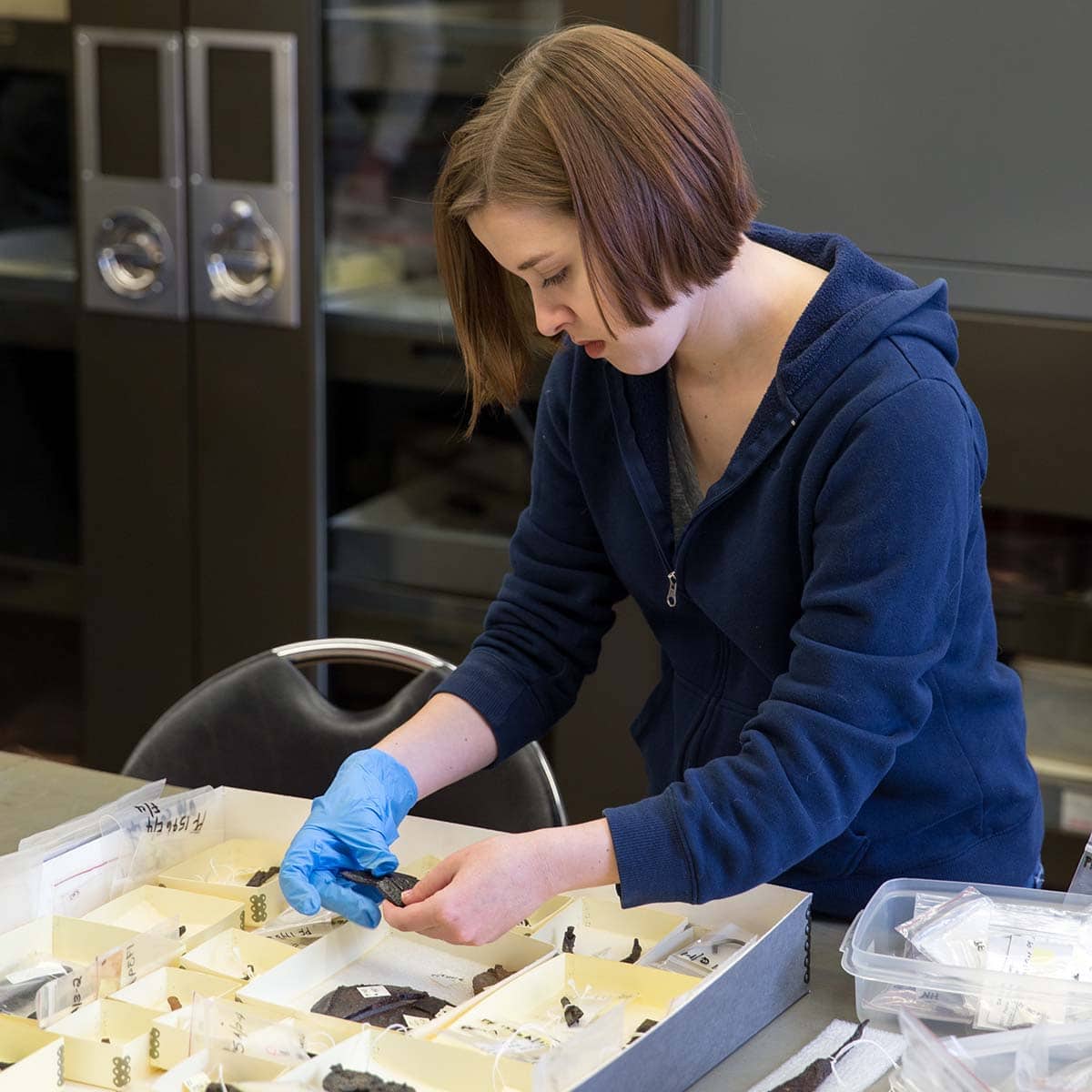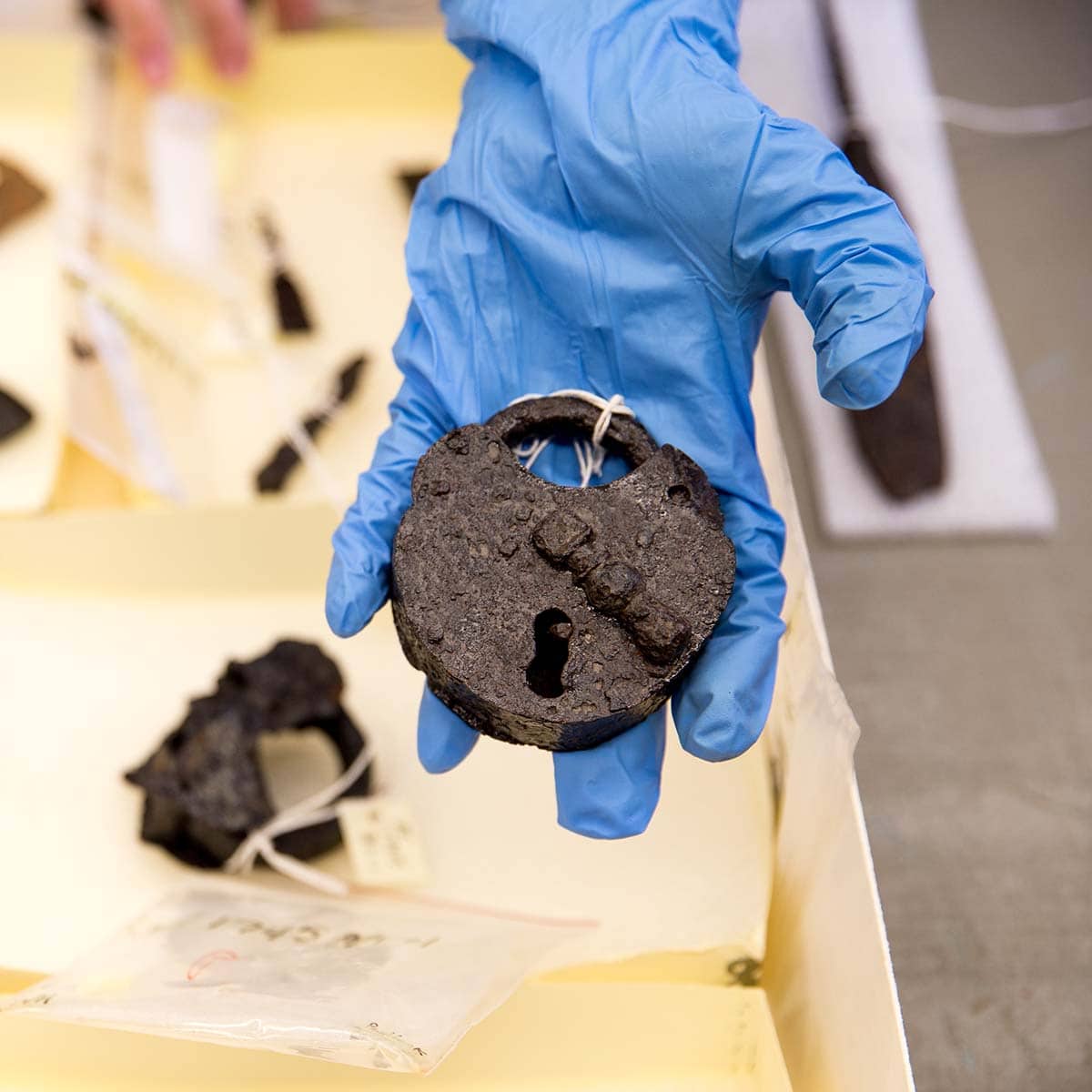Biology
The Randolph College biology curriculum successfully integrates learning and practical experience, providing an excellent starting point for many diverse careers.

Why Study Biology at Randolph?
Randolph students are engaged in hands on experiences in the classroom, in the lab, and in the field
Our participatory academic program emphasizes current research techniques, and our laboratories include the Atlantic Ocean, the Blue Ridge Mountains, the Smithsonian Institution, and the College’s own wildlife reserves.
From environmental research and health fields, such as medicine and physical therapy, to wildlife management and genetic research, the foundation always remains the same—biology, the study of life.
Degrees offered
Bachelor of Arts Degree in Biology
Bachelor of Science Degree in Biology
Minor in Biology
Related Programs
The Randolph Experience
Internships and Study Abroad
Randolph students gain real world experience through required off-campus internships in a variety of fields, disciplines, and industries.
Summer Research Program
Spend the summer working closely with a professor and focused on a specific aspect of physics.
Randolph’s intensive eight-week Summer Research Program enables students to conduct research that is complemented by a thorough review of the relevant literature; live in a residence hall on campus, participate in on-campus summer events, attend special seminars with guest speakers; and share the progress and results of their research.
SciFest
Every year Randolph hosts SciFest, a 3-day science and learning festival for local schoolchildren.
Randolph student and faculty volunteers lead activities, exhibits, labs, and talks designed to get young girls and boys interested in and excited about science, technology, engineering, and math (STEM).
Senior Capstone
Randolph biology majors may conduct laboratory or field studies culminating in presentation of their senior research projects through talks and poster displays.
Outcomes
Historic Preservation Law
Janie Campbell ’12, history major
Preservation Consultant, law firm of Rogers Lewis Jackson Mann & Quinn, LLC, Columbia, South Carolina
Janie’s group works with developers seeking tax credits for rehabilitating historic properties.
“I work closely with project architects to ensure that historic, character defining elements of each building are preserved and restored, which can vary tremendously as what is significant to a 1929 airplane hangar is vastly different from what makes a 1963 mid-century modern motel unique!”
She writes National Register of Historic Places nominations and Historic Preservation Certification applications, which detail the property’s significance. She also conducts site visits to ensure work is being completed as described and photographs the before, during, and after conditions of each project.
“Randolph certainly laid the foundation for my research and writing skills. The Summer Research Program, in particular, prepared me for the type of place-based research I do now. “
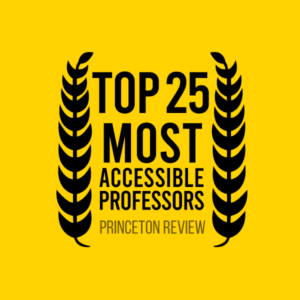
Top Ranked Professors
Randolph College’s faculty are consistently recognized as among the best in the nation. The Princeton Review ranked the College in the Top 25 for most accessible professors in the most recent edition of its flagship college guide, The Best 389 Colleges.
Randolph has been ranked in the top 25 for most accessible professors for more than a decade.
Biology Faculty
Biology Staff
Only at Randolph
Randolph students can take advantage of unique programs which give them a more enriching education than can be found anywhere else.
The Randolph Innovative Student Experience (RISE) program provides every student a $2,000 grant to fund research, creative work, experiential learning or other scholarly pursuits.
Randolph graduates learn to think critically, solve problems and work well with others. They are prepared to succeed in all aspects of life.
Randolph students work with faculty mentors to explore a broad range of disciplines as they chart their academic path.
Two courses per half-mester means you get to focus in and dig deep into your coursework while still having time for the rest of the college experience. Two classes. Seven weeks. Repeat.
Department News
But does it glow? Students investigating biofluorescence in mammals
Biofluorescence occurs when light is absorbed by a molecule found within the skin or fur of an animal and then emitted as light of a different frequency or color, usually green, orange, blue, or red.
Read MoreRumore publishes article about years-long research project with local farm
The study, “Applying Equine-Assisted Learning: A Program for At-Risk Youth,” appeared in "HETI Journal: International Research and Practice 2025."
Read MoreAlumnae return for Women in Science Panel
Melissa Merrill ’89, Victoria Turgeon ’93, Tiffany Vines ’95, and Alexis Blankenship ’15 offered advice to current students.
Read MoreBut does it glow? Students investigating biofluorescence in mammals
Biofluorescence occurs when light is absorbed by a molecule found within the skin or fur of an animal and then emitted as light of a different frequency or color, usually green, orange, blue, or red.
Read MoreRumore publishes article about years-long research project with local farm
The study, “Applying Equine-Assisted Learning: A Program for At-Risk Youth,” appeared in "HETI Journal: International Research and Practice 2025."
Read MoreAlumnae return for Women in Science Panel
Melissa Merrill ’89, Victoria Turgeon ’93, Tiffany Vines ’95, and Alexis Blankenship ’15 offered advice to current students.
Read More